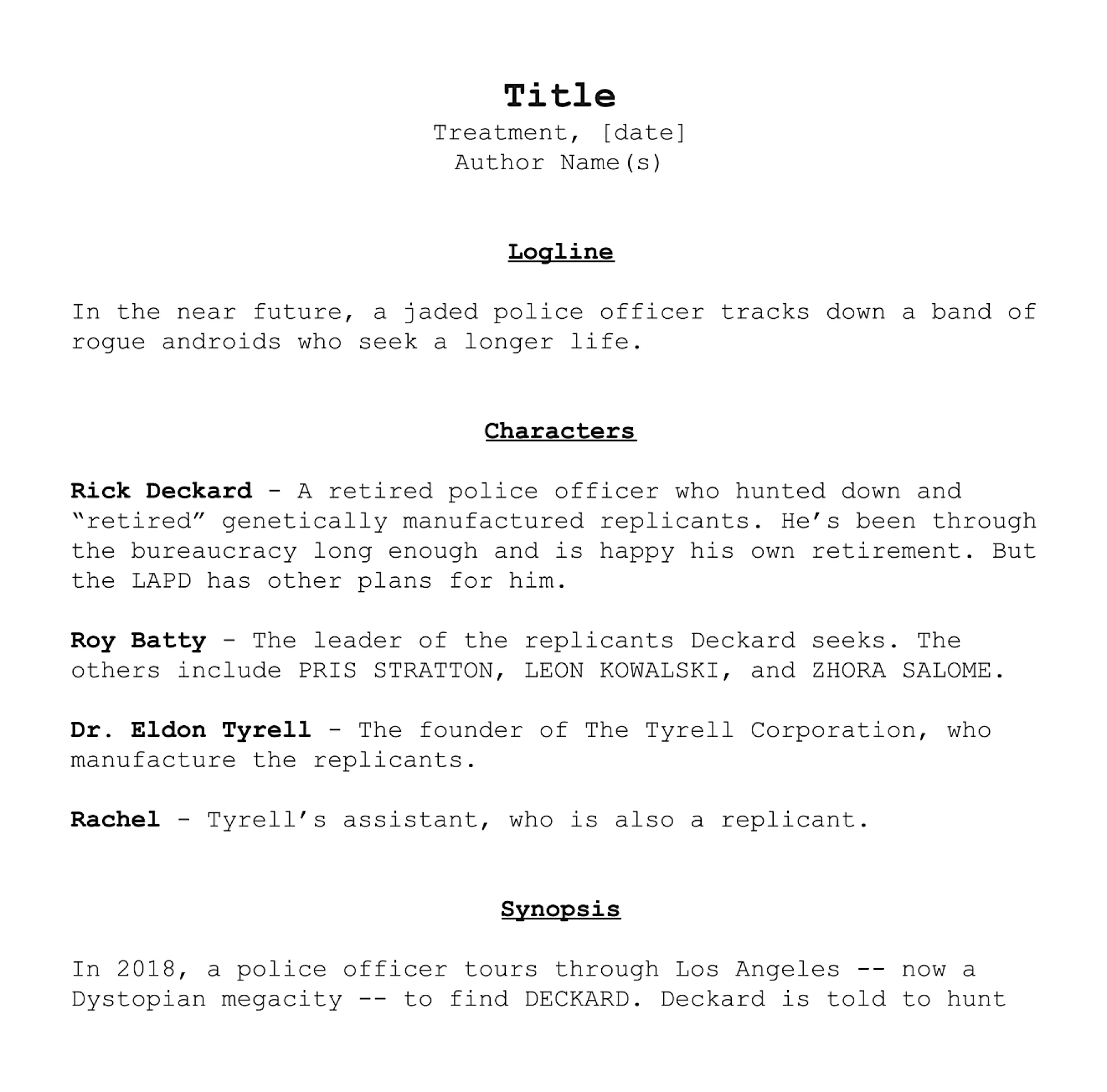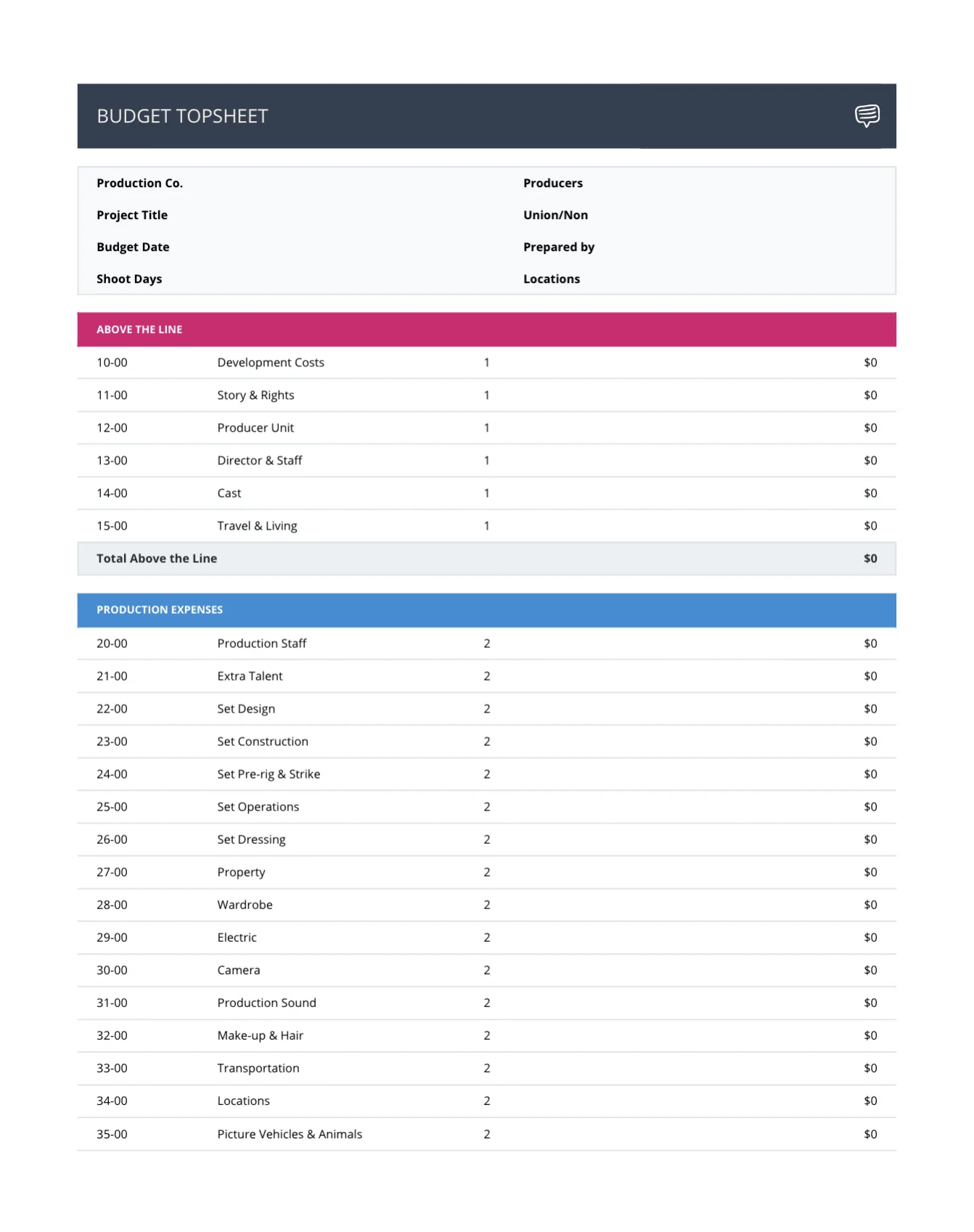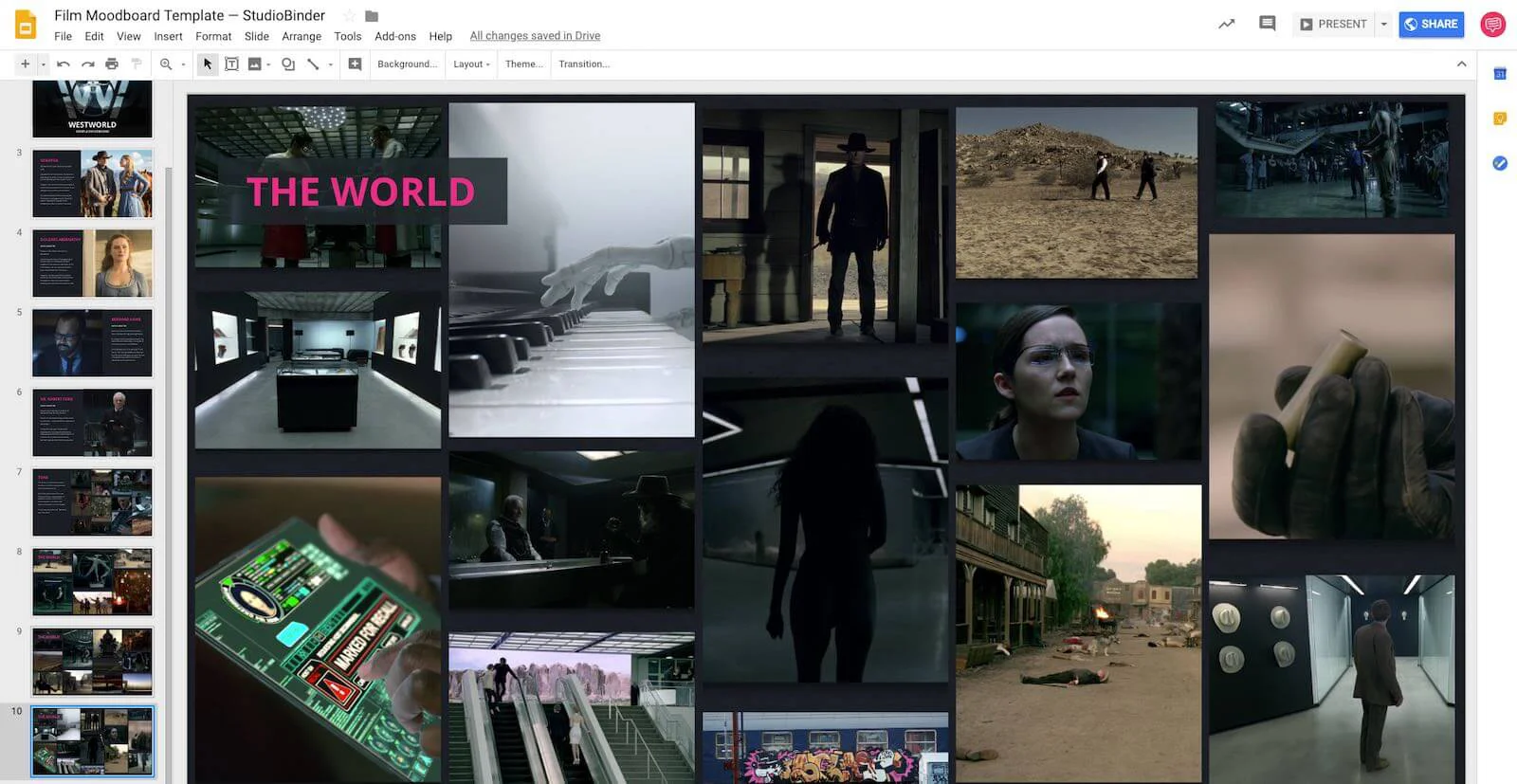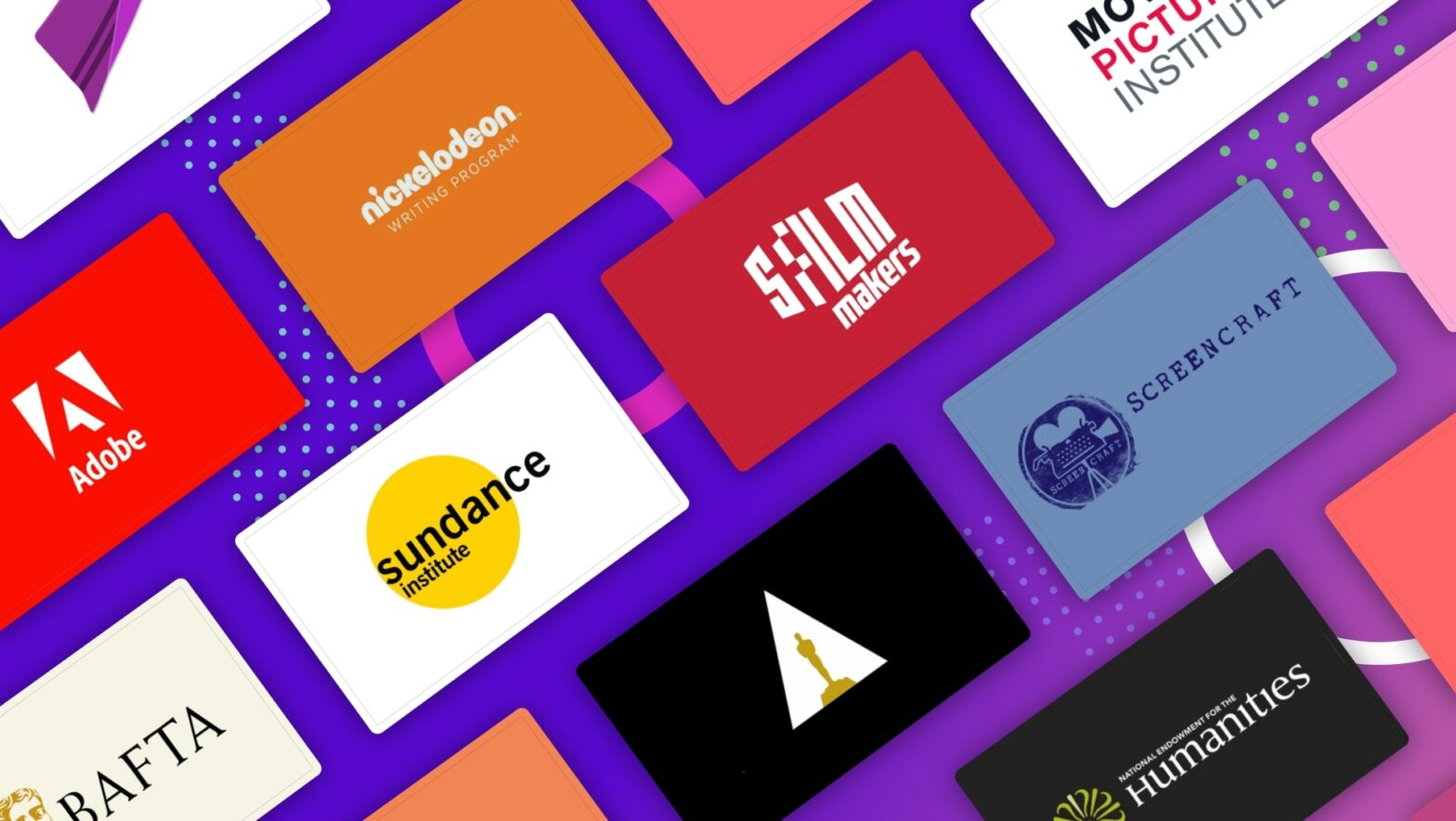Looking for funding for your film is often harder than making the actual movie. Waiting on your agent, producers, or anyone else to show up and give you the funds you need can leave you demoralized. But, finding film funds doesn’t have to be impossible! Because there are film grants for every filmmaker. Not only are they attainable, but you don’t have to exhaust yourself looking for them. Today, we’re discussing finding and applying for the perfect film grants for your project, and we’ve included the most exhaustive film grants list, just for you. Let’s dive in!
Table of Contents
The top film grants list and resource for filmmakers.
- Film Grants Basics
- Top Film Grants by Category
1
Film Grants BASICS
KNOW THESE BEFORE APPLYING
grants, fellowships & labs
The lowdown on film grants
Research is key when applying for film funding.
It doesn’t matter if you are going after a short film grant, feature, or documentary grant, you want to know what you’re applying for.
See, there are subtle differences between film grants, fellowships, and filmmaking labs. Those differences may impact how or when you can use the funds. Or what you can use them on.
You should know the key differences and how to use them to your advantage.
Film grants are usually unrestricted funds, services, or equipment that can be used for the development, production, or distribution of a project. They do not have to be repaid.
Often the awarding entity will want status updates or recognition in the film's credits. Film grants give independent filmmakers the most freedom.
Here's more information on film grants:
Film grants come in all sizes
GRANTS, FELLOWSHIPS & LABS
Continued commitment with fellowships
Film fellowships are different in that they may require a service commitment of some kind. These may also include a residency requirement and additional follow-up with the awarding committee on the project’s progress.
One of the most widely known fellowship is from the Sloan Foundation and is a part of the Sundance, Tribeca and San Francisco Film Festivals.
These fellowships are for artists writing specifically on themes of science.
They require attendance at mentor meetings and labs and usually cover the cost of living for up to three months.
A film fellowship with Film Independent gives artists an amazing boost
GRANTS, FELLOWSHIPS & LABS
Learn faster with your peers
Film Labs may or may not include a stipend for living or travel and have a heavy focus on mentoring and craft.
While a lab might sound time-consuming and restrictive, it is still a great way to secure film funding for your project. Labs are also great ways to network for future opportunities.
Filmmakers that are chosen for lab participation usually have a leg-up in programming for a particular festival.
Also, inclusion in a lab will usually open more doors for a project on completion. Independent filmmakers shouldn’t feel confined to finding money through investors. Especially when there are so many great short film grants, documentary greats, and feature film funding opportunities out there.
Now that you know how to get a film grant and which grants are right for your film project, it’s time to apply for as many grants as possible.
So grab your film grants list and start doing your homework. There’s no better time to get started bringing your film to life.
The Sundance Directors Lab is where emerging directors are discovered
FILM GRANT QUALIFICATION
Which grants are you qualified for?
It doesn’t matter if you want a short film grant or need to finance your feature-length documentary, the best way to find film funding for your project is by starting with you.
We mean this literally. Now that you know what you need to apply for film grants, it’s time to figure out which film grants you are qualified for.
Not your project. You, as a person, because it all starts with you.
See, grants for filmmakers can be offered based on any number of different categories. So your next course of action will be deciding which categories are yours for the owning.
Location
If you live in North Carolina and want to make a film, we guarantee there is free money somewhere that will support you.
Location dependent grants cover all 50 US states. In addition, there are many countries that have film grants available for those living and working there.
So by all means, filmmakers should take advantage of hometown generosity to find film funding.
The Doha Film Institute Grants are for those from MENA countries
Minorities
Women, LGBTQ+, and people of color have been historically underrepresented in filmmaking. The film industry has been attempting to self-correct for the past few years.
Film grants are available for marginalized communities and often include film funding for every stage of the filmmaking process.
Many film grants for minorities also offer mentoring for independent filmmakers or film community memberships which can provide valuable assets for any shoot.
I financed and made my own films from the start. My path has been autonomous and independent, so I don't have any horror stories about glass ceilings and expectations and tense studio meetings.
— Ava DuVernay
A filmmaker explains minority grants funding
Special interest
If you are writing about a particular subject matter, there may just be a film grant for you.
Grants for filmmakers creating projects about esoteric topics are of particular interest to the film grant community.
You can find documentary grants for films on science, math, technology, and engineering. Sociological and environmental documentary funding is also readily available.
But don’t feel tethered to the above topics.
There are documentary grants, short film grants, and feature film grants for nearly every thought-provoking issue and trend.
As an independent filmmaker, you should always pursue what you’re passionate about. Odds are there’s a film grant out there that will help you make your movie.
The Sloan Fellowship is geared towards science in film
First-time filmmakers
Newbie filmmakers often receive encouragement from industry standard bearers such as Panavision or Abel CineTech.
First-time filmmakers should not shy away from these opportunities.
If you have been successful in another industry such as writing, publishing, or theater, there is a high chance that your track record of achievement will lead to success in film funding.
Ranking all of the film grants has more to do with timing and personal interest than anything else.
So use the factors here to help you narrow your search while broadening your opportunities.
Some great advice for first-time filmmakers
FILM GRANTS APPLICATION
How to apply for film grants
Whether you’re looking to finance your documentary filmmaking or secure short film grants, figuring out how to apply for and get film funding can be tough.
From treatments to artists statements, every organization has their own requirements for film grants. It is essential that you carefully review the application materials months in advance.
Keep in mind that there are certain requirements that they all share. Before you actually apply for your film grant, you need to get the following in place:
1. Put together an artist statement
You will definitely need an artist statement for your applications. Think of this one-to-two page letter as an introduction to you and your project. You should make it clear in the letter why you want to do your project. You should also inform the reader of how you would like to bring the project to fruition.
2. Write a film treatment
You will also need a film treatment for your project. This is something you will need throughout the life of the film so it is important to get it right. Being able to sum up your story in a page or two is a craft in itself. Many screenwriters are not as adept at writing treatments as they are at writing actual scripts. But whether you’re going after feature film grants or documentary grants, a killer treatment is a must.
After you have completed your treatment, you can rest easier knowing that you won’t need to do it again for future film grant applications.
Here's what a film treatment looks like:

Grab your free film treatment template
3. Budget your film
You will also need a film budget top sheet to show how you will use any funds that are awarded in your project. It's very important that this is done well.
The more professional and detailed your film budget is, the better your chances of receiving a film grant. Your budget should be industry standard and specific to the project you are submitting. Remember, those reviewing your film grant application know what a budget should look like.

Grab your free film budget template
You will also want to keep an eye on the deadline for your film grant application. They are always very strict with their due dates. Missing it by one day means you don’t get to apply.
As we go into detail on finding and applying make sure you get our exhaustive list of available film grants. The most thorough list of its kind on the web.
A production calendar is a useful way to keep the dates for your submissions organized as the video shows below:
4. Create a moodboard
In addition to the essential elements for your application there are several items that you may include with your grant application.
Including a mood board is one such element that may boost your chances of getting funding for your film project. At the very least your mood board will help illuminate your vision of the project and make it much clearer to those reviewing the project.
Your mood board doesn’t have to be complex or long.
A few pages that give the reader a sense of time, location and theme will do nicely. You definitely don’t want to overwhelm with information.

Moodboard template for film
You can use a mood board app to achieve this, or just grab our free mood board template specifically designed for film.
Free downloadable bonus
Download your FREE Moodboard Template
Visualize your the tone and world of your project with our free mood board template. Easily shareable and customizable in Google Slides.
5. Get a letter of recommendation
Another item to include in your application process is a letter of recommendation.
Now, this can’t come from your mother. A letter of recommendation from someone within the film industry lends your application a little more weight.
Many fellowships will require a letter of recommendation especially if it involves continuous employment or collaboration. So a standard letter from someone at a notable production company or studio is good to have throughout the process of applying for grants.
6. Shoot or edit a proof of concept
Another item to consider including with your grant applications is a reel, proof of concept piece or work-in-progress footage that shows the work being done.
If a picture tells a thousand words, then moving pictures tell many more.
Having visual evidence of your style and standards of filmmaking can do wonders to push your project to the front of the line.
With a reel or proof of concept, you show decision-makers that you are a professional and that your work is good enough to warrant the prize they are offering. Here's a video breaking down a sizzle reel:
How to create a proof of concept (from our masterclass on TV Writing)
2
TOP FILM GRANTS
THE BEST FILM GRANTS BY CATEGORY
Independent filmmakers know there are many ways to classify a film project. Different kinds of films require different film grants. It is important for filmmakers to thoroughly understand the differences between the types of films there are and the kind of funding for them.
One of the common mistakes in film grants submission is determining if a project is a short film, feature-length or something else entirely.
Each organization may have different standards for their categories, so it is always good to double check.
For instance, a documentary feature doesn’t necessarily have to be ninety minutes in length to be considered in the feature category whereas most narrative features do.
Don’t make the mistake of assuming anything. Most of the submissions will cost money, and if you enter the wrong category, and pay the wrong fees, you may be just throwing money away.
DOCUMENTARY FILM GRANTS
Make something real
Documentaries are non-fiction filmmaking with an emphasis on reality, education, or historical record. There are many great documentary grants out there for a variety of subjects.
AmDocs Film Fund
Deadline: Rolling
California Documentary Project Grant
Deadline: November TBD
California Documentary Project: NEXT GEN Grant
Deadline: March TBD
Catapult Film Fund
Deadline: Rolling
EURODOC
Deadline: November TBD
Film Independent Directing Lab
Deadline: April-May TBD
Film Independent Documentary Lab
Deadline: March (TBD)
Frameline Completion Fund
Deadline: Fall (TBD)
Hot Docs Blue Ice Fund
Deadline: December
Hot Docs Ted Rogers Fund
Deadline: August
ITVS Open Call
Deadline: June
MountainFilm Commitment Grant
Deadline: August
NEH Media Production Grants
Deadline: August
POV: Call for Entries
Deadline: July
SFFILM Documentary Film Fund
Deadline: TBD
Screen Australia: Documentary Development
Deadline: Anytime
Sundance Documentary Fund
Deadline: February
The Alter-Ciné Foundation
Deadline: August
The Fledging Fund
Deadline: October
The Scottish Documentary Institute Consultancies
Deadline: March
Visions Sud Est Fund
Deadline: February
Creative Capital
Deadline: February
A great way to keep track of these film grant deadlines would be to mark them up on your calendar. Here's an example of how we suggest incorporating it using StudioBinder's production calendar software:
NARRATIVE FILM GRANTS
Tell a longer story
Narrative film grants are given to films that tell a fictional or fictionalized stories, events or narratives. They also usually make a distinction for films over 90 minutes and are feature length.
Film Independent Project Involve
Deadline: September (TBD)
Flies Collective Film Grant
Deadline: July
GLAS Animation Grant Program
Deadline: May
Loreen Arbus Disability Awareness Grant
Deadline: November (TBD)
Moving Image Institute Filmmaker Grants
Deadline: January
National Film Board of Canada Filmmaker Assistance Program
Deadline: Specific to your region
SFFILM Rainin Grant
Deadline: April
Screen Australia’s Feature Film Production Program
Deadline: Rolling basis throughout pandemic
ScreenCraft Film Production Fund
Deadline: December
SFFILM Sloan Science in Cinema Fellowship
Deadline: Reopens in March
The Arab Fund for Arts and Culture: Cinema Grant
Deadline: July
The Roy Dean Grant/From the Heart Productions
Deadline: June
World Cinema Fund Production Funding
Deadline: July
short film grants
Make it short and stunning
Short film grants are films that are under a specific time allotment, usually under 60 minutes. Most organizations have particular guidelines on what constitutes a short film.
Community Builders Grant
Deadline: March TBD
Jerome Foundation Short Film Grants
Deadline: Spring
The Film Fund
Deadline: March TBD
AFS Grant for Short Films
Deadline: Rolling
Filmmakers Without Borders
Deadline: January
Manuel Rivera-Ortiz Foundation For Documentary Photo & Film
Deadline: November
Women In Film Finishing Fund
Deadline: TBD
The Roy Dean Grant/From the Heart Productions Grant
Deadline: March
The Independent Filmmaker Project
Deadline: September
CrossCurrents Canada Doc Fund
Deadline: TBD
CrossCurrents International Doc Fund
Deadline: June
I love doing features, but it's a very different ballgame. Sometimes I yearn for short films again, working with a small team, getting my hands on the clay.
— Nick Park
TELEVISION FILM GRANTS
Good night, and good luck
Television film grants are given to projects being explicitly made for television broadcast. These grants can be used at any stage of the project from script development to distribution.
ITVS Open Call
Deadline: February
Vision Maker Media - Public Media Content Fund
Deadline: March
Independent Lens
Deadline: January
The Diversity Development Fund
Deadline: July
NEH Media Production Grants
Deadline: January
WOMEN IN FILM GRANTS
Every voice is unique
Women in film grants are offered to female filmmakers in various positions. They were initially created to balance the lack of visibility on screen and representation of females behind the camera and in executive positions.
Chicken & Egg Open Call
Deadline: Spring
Sondra Kelly Award
Deadline: March TBD
Women Make Movies Fiscal Sponsorship
Deadline: Rolling
WIFV Fiscal Sponsorship
Deadline: April TBD
WIFV Carolyn’s First Decade Fund
Deadline: Call for applications will be in Summer
STUDENT FILM GRANTS
Class is in session
Student film grants are available to those under age 22 or with restrictions on them being in an institution of higher learning. Most student film grants also double as first-time or emerging filmmaker grants.
Into Film
Deadline: Rolling
Film Hub London
Deadline: TBD
Student Academy Awards
Deadline: June
New media film grants
For all media formats
New media film grants are offered to projects created for the web, phone or other digital platforms. A relatively new addition to the grants categories, these grants have been responsible for many filmmakers and content creators getting the opportunity to go mainstream.
Filmmakers Without Borders
Deadline: June - August
The Virtual Reality Venture Capital Alliance
Deadline: Rolling
Alfred P. Sloan Foundation New Media Grants
Deadline: Rolling
VR and interactive film grants
The future is now
VR and Interactive Media film grants are offered in the new and groundbreaking fields of virtual filmmaking and augmented reality and gaming. With these grants, more and more artists are thinking outside the box when it comes to audio-visual content creation and funding.
Alfred P. Sloan Foundation New Media Grants
Deadline: Rolling
Ford Foundation: JustFilms
Deadline: Rolling
NEH Digital Projects for the Public
Deadline: June
The Virtual Reality Venture Capital Alliance
Deadline: Rolling
film grants for minorities
Rep the underrepresented
Film grants for minorities are offered to underrepresented filmmakers and diverse voices. Usually provided for People of Color, LGBTQ and Disabled filmmakers and or subject matters that represent more varied storytelling.
AXS Film Fund
Deadline: Rolling
Black Public Media: 360 Incubator+
Deadline: Rolling
Film Independent Project Involve
Deadline: Rolling
Filmmakers Without Borders Grants
Deadline: Rolling
Independent Television Service – Diversity Development Fund
Deadline: TBD
Puffin Foundation Grant
Deadline: July (TBD)
Screenwriting FILM GRANTS
Start with the words
Screenwriting grants are offered for narrative, documentary and television filmmaking. Screenwriting grants are one of the most popular fields of funding as they require very few supporting materials for the work being considered. Find the next contest you're looking for by checking out our blog posts on the Best Screenwriting Fellowships and Best Screenwriting Contests!
BAFTA Rocliffe Film Call
Deadline: February (TBD)
Cinequest Screenwriting Competition
Deadline: Rolling
ScreenCraft Short Film Production Fund
Deadline: May (TBD)
Nickelodeon Writing Program
Deadline: August
RELATED POSTS
UP NEXT
How to budget a script breakdown
No one is going to give you a grant without a proper budget. You have to make sure that all your items line up from the very start. Be sure to keep reading so you’ll know how to craft your budget from your breakdown.
Up Next: Film budget planning →
Project management for video creatives. Tasks, file sharing, calendars and more.
Manage video production timelines, tasks, storyboards, shot lists, breakdowns, call sheets. Made for video creatives, new media and film.


Extremely informative and useful for every and all filmmaker; thank you.
Hi there Herman, great article with lots of good advice. Would love to have seen The Pitch Film Fund listed under short film grants. We have been around since 2009 and offer a fully funded cash budget for a short film, currently £35,000 which is a rarity in this area.
thanks,
Luke
Producer
Thank you so much for your efforts in creating this!
What advice do you have for a new producer looking for funds to produce her movie? I don't know where to start raising funds for my faith base movie.
Herman, where could I find a list of those that actually received any of this grants listed.
Thanks for this article! Pretty saturated. It remains unclear why they give money at all. This money is non-refundable. What is their benefit? I understand that when investors give money, they want to make a profit with interest. I understand sponsors – they give money under certain conditions, often – the presence of advertising of their product in the film. But why do grant givers give grants? Often this is allocated from the state budget at all, that is, it is taxpayers' money.
I truly plan to employ the information gathered here to finance my glorious film project. I am thankful and excited about the newly discovered opportunity to bring my film to life, thank you!